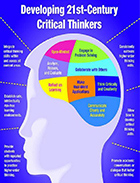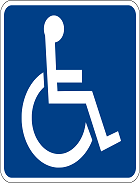Time to put away the consoles - Gaming Addiction
Time to put away the consoles - Gaming Addiction
The concept of gaming has been around for decades. What started off as computer programs to create a basic game
 are now being played using gaming consoles. The games, which are being developed on a daily basis often seek to attract the gaming community. The initial idea behind development of games was to entertain the players and to help them relax. Today, gaming is taken so seriously that people even make it a profession
are now being played using gaming consoles. The games, which are being developed on a daily basis often seek to attract the gaming community. The initial idea behind development of games was to entertain the players and to help them relax. Today, gaming is taken so seriously that people even make it a professionGaming, Gamer and Game
Gaming involves playing interactive games by digital/video mode. A gamer is the player and games can be interactive and card-based. Games that have been played have transitioned over the years and are currently in sync with the technological developments of Augmented Reality and Virtual Reality.
What is so captivating about gaming?
People viewing gaming from the outside would often wonder what is so captivating about it.
Apart from taking the player to a whole new world, gaming allows a person to be a completely new character in the virtual world. From chieftains to magical animals, gaming redefines the concept of user experience and captivates the crowd by:
-
Offering reward system Gaming involves a concept of reward, based on tasks to be completed. Rewards give a sense of achievement to the players. The gamers with rewards are given the option to unlock additional features or boosts, which in turn improves their overall score.
-
Social interaction Gaming connects people all over the world. Certain games have a concept of groups, where one player can connect with other players from different countries. Social interaction develops competition, communication and cooperation among the players.
-
Personalisation Gaming involves a certain level of personalisation where the player controls his/her interaction with others and the way one gets portrayed online.
-
Stimulating the mind Gaming is said to stimulate the mind. This holds good when the game involves a certain amount of skills to be applied like analytical, decision making or logical skills.
-
The endless possibilities Gamers are attracted to games that offers them various choices and possibilities over games that follow a set path.
Skills developed by gaming:
Not only does gaming captivate people across different age groups, it also helps in development of certain skills like:

-
Coordination Gaming helps in developing hand-eye coordination. This helps to track the movement of the hands through the eyes and can improve the ability to perform daily tasks.
-
Strategic planning Strategic planning is a series of steps taken to achieve a specific purpose. Gaming involves tasks and challenges which help to develop strategy and planning skills.
-
Problem solving skills Playing games that involve analytical skills helps to approach a problem in a smoother way and develops problem solving skills.
-
Teamwork Certain multiplayer games involve gamers teaming together to complete tasks. This develops teamwork and networking skills in the players.
Gaming disorder:
With new games being developed daily and the number of gamers increasing by the day, gaming addiction is being taken more seriously. Gaming addiction is the compulsive and uncontrolled use of video games such that, it causes problems in other areas of a person’s life.
According to a recent report by WHO (World Health Organization), gaming has been termed as a disorder, and has been added to the International Classification of Diseases.
Gaming disorder has been defined as a pattern of gaming behavior, characterised by poor control over gaming and an increase in priority given to gaming over other activities. It has been termed as a disorder due to its addictive nature.
When gaming becomes an addiction…
Gaming addiction can be of two types:
-
A game involving a single player who has certain targets to achieve. The game addiction here is about completing the task and moving to a higher level of the game.
-
A game with multiple players which takes the gamers to a different realm. The addiction here is continuous and results in the players being hooked to the gaming consoles. When gaming becomes an addiction, it affects various aspects of a person’s life:
-
Gaming behaviour takes over other activities When addicted to gaming, a person tends to forget about other activities and ends up making gaming as a priority.
-
Impairment in the relationships with society, family, and others. Addiction to gaming leads to poor interaction with family, friends and the society.
-
Poor grades in school The grades in school tend to slip, as the child spends less time studying and more in gaming.
-
Poor physical health Too much of gaming may lead to a poor physical health. A child may end up ignoring food or may begin binging on junk food, leading to weight gain and obesity
-
Poor sleep habits Sleeping patterns may be affected to a great extent where, the child may end up staying awake late into the night. Lack of sleep can lead to poor attention in the classroom and may result in the child falling asleep in the classroom.
How are children affected?
 Despite the numerous reports that elucidate the benefits of gaming like, improving employability skills, developing certain areas of the brain, and helping to cope with trauma and pain, gaming tends to affect the gamer in numerous ways.
Despite the numerous reports that elucidate the benefits of gaming like, improving employability skills, developing certain areas of the brain, and helping to cope with trauma and pain, gaming tends to affect the gamer in numerous ways.The gamer includes children, young adults and adults who are affected in the following ways:
-
Preoccupation Gamers often have preoccupied thoughts and may fail to focus in the classroom, work or other surrounding.
-
Mood swings Lack of sleep can lead to mood swings and irritability and may even lead to behavioural issues.
-
Reduced participation in other activities Addiction to gaming may reduce the participation in other activities like interacting with the family, studying, physical exercises, etc.
-
Persistent gaming Children may continue gaming despite knowing the problems caused by it. This can affect the mental health of the child.
-
As an escape Gaming tends to turn into an escape from stress or anxiety. By opting for gaming, children may fail to develop the right attitude required to face stress and anxiety.
-
Inattentive Addiction to gaming makes children inattentive in class. Despite research stating gaming to be beneficial to children, an overdose of gaming will turn the child inattentive in the classroom.
-
Sleeps at odd hours A child addicted to gaming will end up sleeping at odd hours. Sometimes, it can be right in the classroom.
-
Avoids interaction Children typically avoid interaction and networking with people and, tend to prefer the virtual world over the real.
-
Withdrawal Children addicted to gaming can be seen withdrawn from the family and the classroom.
-
Not active Children do not participate actively in the classroom and tend to remain aloof and silent.
Damages caused by serious gaming:
-
Fatigue The game tends to feel tired all the time. Fatigue is a state where the person ends up feeling exhausted, tired and lethargic all the time. Lack of proper sleep and a poor lifestyle caused by continuous gaming can lead to fatigue.
-
Pain Gaming can lead to head ache, wrist ache, and this can lead to further illness. It has often been advised to stop and rest whenever the wrist, arm, hands or eyes develop tingling or burning sensation.
-
Video gamer’s thumb Gamer’s thumb is the inflammation of the fluid-filled tunnel between two tendons that control the movement of the thumb. This can lead to DeQuervain’s Syndrome and Trigger Finger.
-
Nintendonitis This is also called as Nintendo Thumb. It is a stress injury that causes swelling at the base of the thumb due to overuse.
-
Weakness The body becomes weak when there is an intake of food at irregular times. Sleep deprivation adds to the condition, exhausting the person completely.
What can teachers/parents do?

Teachers and parents can help reduce a child’s gaming time. Besides their respective houses, children tend to spend more time at school. Here are some steps that can be taken to tackle gaming/gaming disorder.
Tackling gaming disorder at home:
-
Restricting screen time Parents can restrict the screen time of the child. Children of different age groups have certain fixed screen times. Extending gaming beyond the screen time can cause serious issues in the child.
-
Spending more time with family Parents should spend most of their time with children. When parents fail to make time for children, they resort to technology. This can lead to behavioural issues in the later stages.
-
Introducing the child to a new hobby The children can be introduced to new hobbies once in a while. This will keep them preoccupied and will develop their creativity, along with other skills.
-
Restricting the gadgets to the drawing room Gadgets in the house should not be taken beyond a point. The use of gadgets can be restricted to the drawing room. Parents and kids can keep away their gadgets to spend more time with each other.
-
Introducing the child to educative and creative games With the onset of gaming, children have forgotten most of the traditional/board games. Parents can introduce the children to games like monopoly, chess, ludo, etc. Children should also be encouraged to step out of the houses to play games on an actual ground.
Tackling gaming disorder in the school:
-
Introducing students to a new set of hobbies Children in the classroom can be introduced to creative hobbies like crafting, origami, painting, etc. They can be encouraged to pursue the same, to reduce the time spent playing online games.
-
Encouraging students to take up a sport and be active in the class Teachers can emphasise on the benefits of sports and ask the children to take up their favourite sport. Schools can provide the necessary infrastructure to help in reducing gaming.
-
Reaching out to students The school can set up a counselling cells to talk to students regarding gaming disorder. Teachers can become more aware in the classroom and talk to students showing signs like mood swings, lack of attention, withdrawn behaviour, etc.
-
Observing all the students on a regular basis to detect any signs of gaming disorder Teachers can observe students on a regular basis to find any behavioural changes that can be addressed immediately.
-
Working with parents Schools can work with parents to sort out gaming addiction. Schools can also organise workshops to highlight the effect of video game addiction.
There’s a fine line between gaming and addiction. Gaming is good and permissible as long as it helps in learning new and developing the existing skills. Schools and families can encourage children to play interactive games using smart devices or gaming consoles but should know when to intervene. Children should be allocated an age-appropriate screen-time. By taking the steps mentioned above, parents and teachers can ensure that children do not overdo the concept of gaming.





















